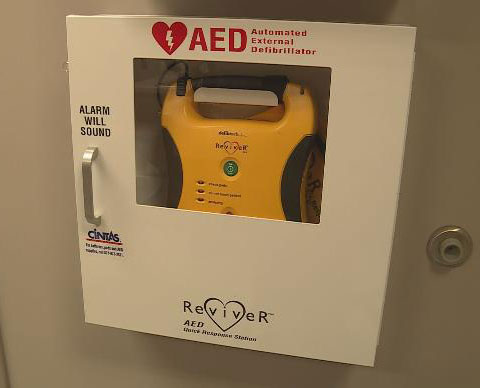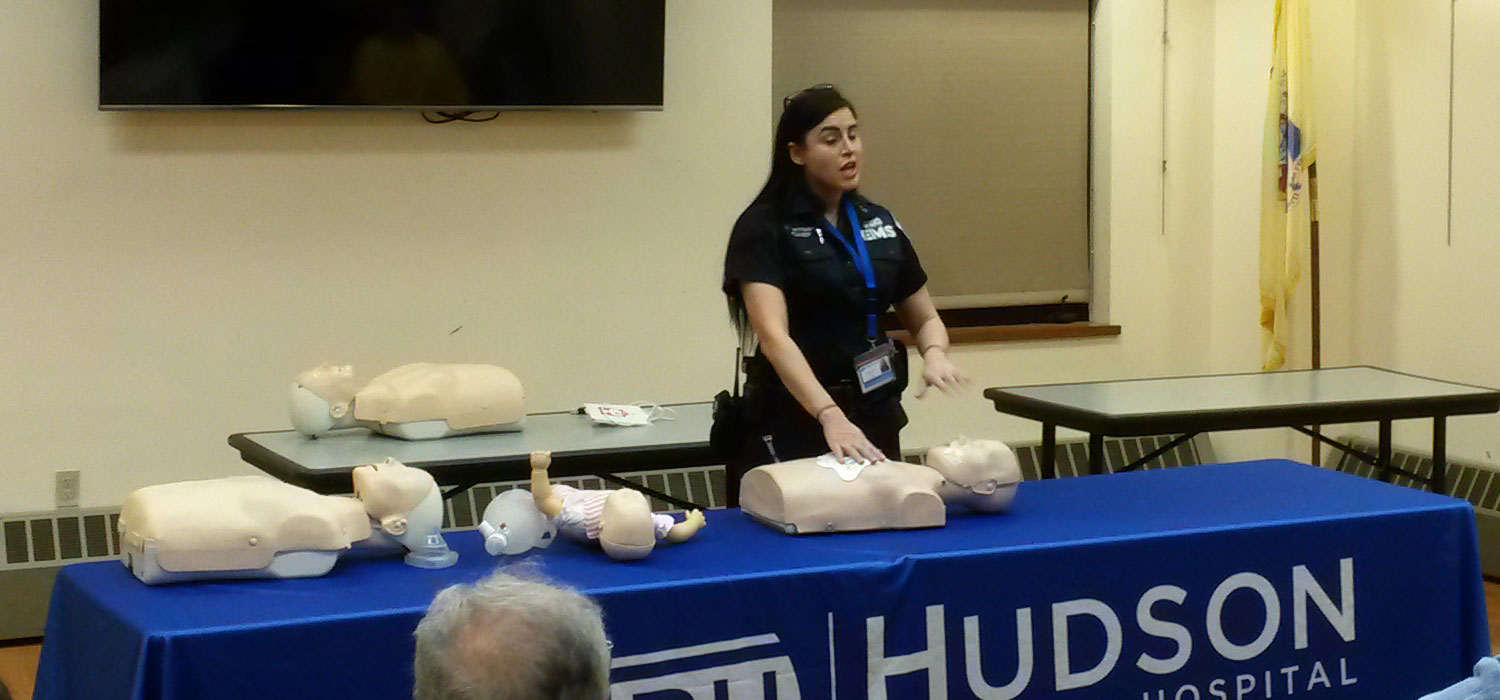On February 22, the Emergency Medical Services team from the Hudson Regional Hospital held a CPR training class at the Secaucus Public Library. Not knowing anything about CPR other than what I have seen on television, I didn't know what to expect when I attended. The class was led by the Chief of EMS, Kristin Hyman, and she did a great job as the main instructor. The materials covered was very organized, and the EMS team brought multiple CPR dummies (including an infant version) to demonstrate the proper technique. The attendees even got a chance to try out what we learned on those dummies.

In addition to proper CPR technique, the class also included instruction on the use of AED's (Automated External Defibrillators), Although I have seen these units in municipal buildings around town, I always thought they were exclusively for medical professionals to shock the heart into beating like you see in medical dramas. To my surprise, these units can be pretty much used by anyone, and they do much more than just provide shocks. Basically, I learned that these are mini-computers that can actually instruct you on what to do. Simply hook up the unit by attaching adhesive pads to the patient, and the machine will actually verbally tell you what to do.
A significant amount of time was also spent fielding questions from the attendees, even if those questions were not directly related to CPR. The instructor was very patient. And from her responses, it was obvious that she is very knowledgeable. But perhaps more importantly, her passion for her work really shined through. She seemed sincerely interested in educating others on how to help save lives.
Unfortunately, this class didn't provide any type of CPR certification. But according to the instructor, the materials covered is the same as that of more formal CPR certification classes.
That is hard to imagine given that the whole class was only about an hour long. Furthermore, there wasn't much instruction on mouth-to-mouth resuscitation. (I was surprised to learn that mouth-to-mouth isn't a vital component of CPR.) Regardless, I did get a good understanding of the basics.
The chief mentioned that this class may be offered again in the future. So if the opportunity should arise, I would definitely recommend this class to others. Attending the class doesn't necessarily mean that you are ready to start saving lives the next day. However, if an emergency does occur, you at least don't have to feel helpless, especially if the patient is someone close to you.


